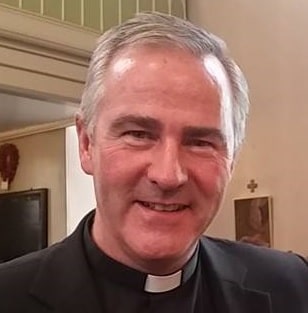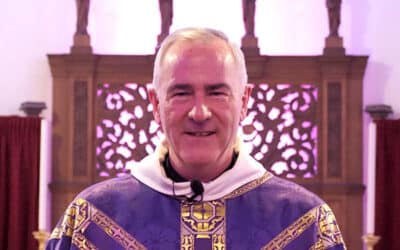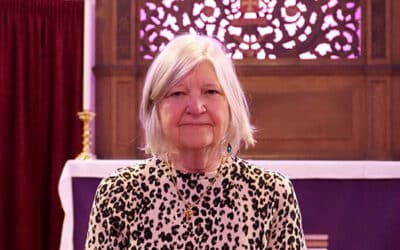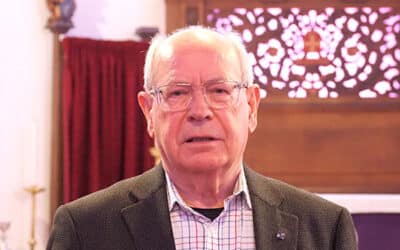Dear Friends
Seeds and their potential to become plants have always fascinated me. Take the sweet pea. It climbs exuberantly four
or five feet above ground level, producing copious amounts of sweetly scented flowers, and the miracle is that the more you
pluck, the more they grow. Finally, after giving us pleasure through the summer months, they die back leaving a few stray
pods of seeds, and the miracle is ready to start again.
Out of a dried up, unlovely pod, filled with small, dark, spherical objects, will come the next abundant growth, and yet again I will be amazed that such a small insignificant sphere can be so mightily transformed.
At the very start, though, the seed needs help if it is to achieve its full potential of transformation. Some gardeners will tell you to soften the seed-case by soaking the seeds, or even pouring boiling water over them. I prefer the gentler method of sowing them into a small tray filled with compost, covering the tray and keeping it in a warm place. It can take a week or two before the first eagerly awaited shoots start to break through that extraordinary hard exterior. At first, it seems as if the seed is rotting away, but then, the tiny shoots and roots are noticed. Who, on seeing this the first time, could imagine that from such a puny start a glorious extravaganza of flowers would finally come? But this, of course, is how transformation often starts in the dark and hidden places of our personality, at first not always recognised in the first showings.
The Day of Resurrection, the first Easter, coincided with the Barley Harvest celebrated by the Jewish Community. The seeds would be taken to the Temple and blessed. St Paul, in his first letter to the Corinthians, speaks eloquently of the promise of first fruits of resurrection seen through the death and resurrection of Christ. Jesus himself had spoken about the necessity of a seed falling into the ground, for unless it dies it cannot realise its full potential.
The heart and hope of the gospel is the death and resurrection of our Lord Jesus Christ. He is the example, the vision and the means. But faith on its own, no matter how much the effort, cannot make the transformation from seed to blossoming plant.
Fifty days later, with music and shouting and great rejoicing, another festival would be celebrated. The first fruits had yielded their harvest: wheat and corn, bread and ripe, luscious fruits would be taken in abundance to the Temple as a thanksgiving. They would be taken in a great, noisy, jubilant procession as evidence of God’s transforming power and abundant generosity.
It was at this time that the Holy Spirit came upon the disciples. They had coped with bereavement and the mind-boggling fact of the resurrection. They had witnessed the inexorable walk to the Cross, and had seen, heard and touched the risen Christ for themselves. Now, Jesus had left them once again. This time they didn’t hide away in fear, but withdrew to pray and wait, a sense of anticipation in their hearts.
We need to believe in Jesus, the first fruit. The disciples had learned to do so. Once the seeds of faith were sown and received by them, then no matter how dark the soil, how impervious the seed case may have seemed, the Holy Spirit set to work, softening the seed case, protecting the tender shoots, encouraging growth and rejoicing in the abundance harvest which lay within.
Who would have thought Peter, an illiterate fisherman, could have stood and spoken with such compelling eloquence or have the endurance to suffer for his faith in Christ? Who could have imagined that Paul, the arch persecutor of Christians, would have repented so completely that he flung his enormous intellect into promoting the very thing he had hated with an equal passion?
Centuries later, who could have possibly believed that the young Francis, dissolute and uncaring, could have been the founder of the Franciscans, or a small Albanian girl receive the Nobel peace prize for her work with the dying in India and her example of selflessness to a godless society?
It could only be the transformer at work, the Holy Spirit, working within them to bring about such change, helping them to achieve potential beyond their dreams. What could the future hold for you and me if we allowed the Holy Spirit full rein?
There is a curious paradox in Christianity, voiced by John the Baptist: “He must increase, but I must decrease.” Once the Holy Spirit is at work in us and is allowed by us to go on working, then the more his power within us increases and influences, the more likely we are to reach our full potential – we will grow up in him.
The seed is planted and dies. The tender shoot grows into a healthy young plant and produces flowers and fruit. In turn, the fruit is harvested and fresh seeds are sown in hearts longing to find their rest in God.
At Pentecost we celebrate the coming of the Holy Spirit. We rejoice in the abundance of God’s grace and mercy to each one of us, not only through the sacrifice of his Son, but in the promises of new life through the Holy Spirit. Through the Holy Spirit, the Transformer, we have the chance to grow to full maturity, to enjoy and benefit from the fruits of his love. Thanks be to God.
Drew



